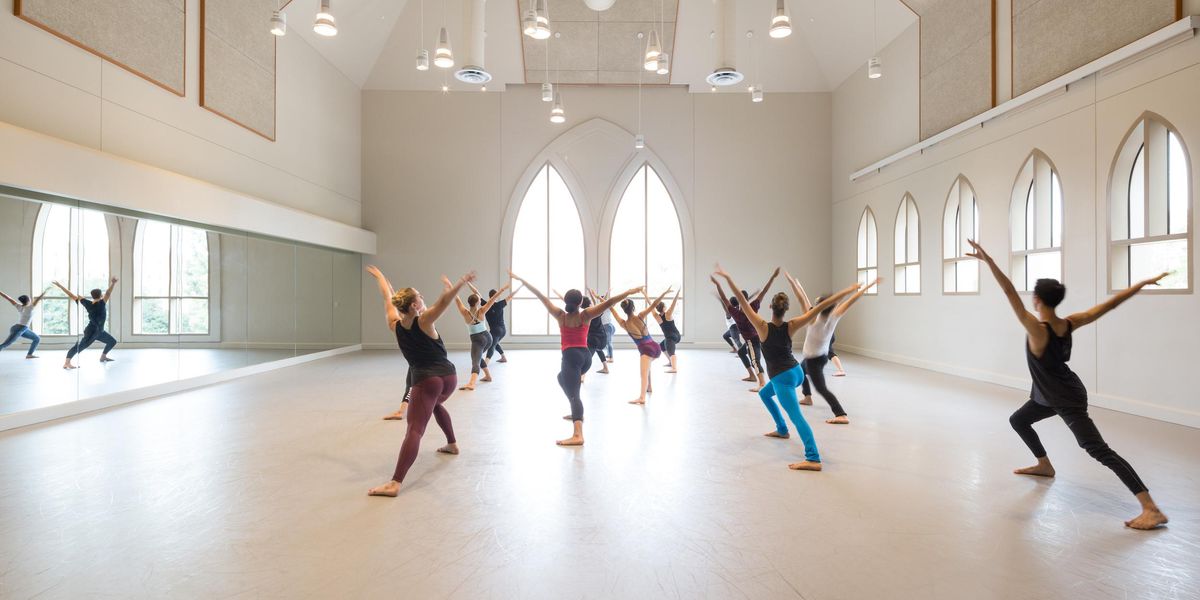Curtain Up
Should modern dancers go to college? Do they really learn to dance there, or are they better off taking tons of classes until they land a gig? What about going to a conservatory program?
These questions were broached in an article in
The New York Times entitled “Practice, Practice, Practice. Go to College? Maybe.” [Dec. 21, 2005]. The writer, Erika Kinetz, focused on Mark Morris and his dancers as examples of current attitudes. Although 15 out of 17 dancers in the Mark Morris Dance Group graduated from colleges or conservatories, Morris himself called the college experience “a big bag of wind.” Thanks Mark, for that highly nuanced observation, but this is exactly the wrong time to be trashing the role that colleges, universities, and conservatories play in the dance field. College dance departments are becoming virtual incubators of dance. They have been hiring working dance artists as teachers and giving them time to choreograph within the academic calendar. Students are exposed to high-caliber dance makers like David Dorfman(Connecticut College), Bebe Miller (Ohio State University), Terry Creach (Bennington College), and Jawole Willa Jo Zollar (Florida State University). Academics are finally accepting dance as an art equal to literature and music. And dance majors graduating from these schools are just as likely to get a job as those who go the studio route.
It would be hard to find a dancer today who regrets going to college. On a lively campus you learn not only from your teachers, but also from your fellow students. Those four years are a precious period of discovery. College is a place where you learn to dance as part of the world, not in isolation. You train your mind as well as your body, finding connections between dance and literature, dance and psychology, dance and science. You learn to look at something from all sides, to weigh opposing viewpoints and develop independent thinking. The combination of dance productivity and intellectual debate hones you as a person and gives you more dimension as a performer.
In a conservatory program, you immerse yourself in all aspects of dance. Though there is less emphasis on developing the whole person, this intensive schedule is an excellent preparation for professional work.
And yes, you can make connections in colleges or conservatories that help jump-start your career. I’m not saying that attending either of these types of programs is a guarantee of getting work as a dancer. Nothing is. But if you read the special jobs segment in this issue, you’ll get some clues. In “From Learning to Doing,” Rachel Straus talks to six recent graduates of dance programs who have snared satisfying jobs. Because of a recent trend to find work in Europe, we’ve included a story on “Americans Abroad,” following both recent transplants and longtime expatriates. And, since more and more dancers are relying on agents to get them work, Kim Okamura, in “Agents: Who Has One? Who Needs One?” tells us how it all works.
So read up. Get a job. And then curtain up. On you.




